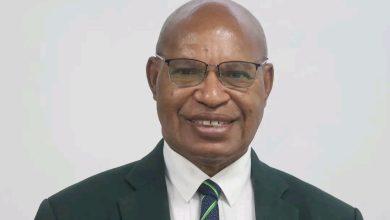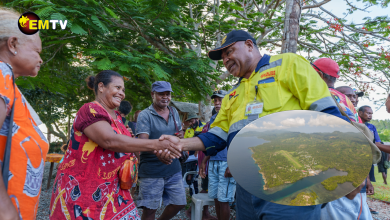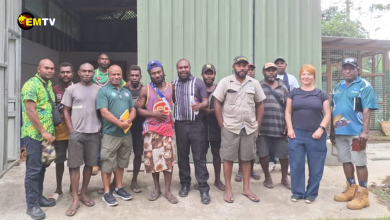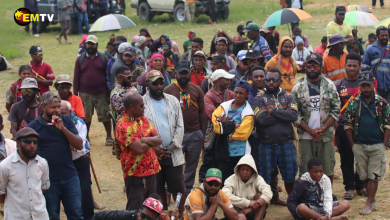Peter Botten, Managing Director of PNG’s largest company Oil Search, tells Business Advantage PNG that the company’s PNG assets are ‘highly profitable’ despite low petroleum and gas prices. He says the company is developing a five-year plan for ensuring sustainability, managing exploration and working with the community.
Botten believes that PNG is well situated to ‘weather the storm’ of a low oil and gas price environment because of the proximity to Asian markets and the low cost base.
But he says he has closely examined the implications of the current situation.
‘I actually think calibration of the oil and gas space has been very healthy for the long-term industry.’
‘Like every organisation in the oil and gas space, we went through an initial review of how to drive further cost efficiencies and production uplifts through a period of relatively low commodity pricing, and that is an ongoing review,’ he tells Business Advantage PNG.
‘I actually think calibration of the oil and gas space has been very healthy for the long-term industry.’
Oil prices
Botten is ‘not particularly optimistic’ about the oil price in the short term, adding that OPEC needs to ‘demonstrate solid discipline around production.’ And, even if OPEC’s supply is restricted, any effect may be ‘swamped by production additions in the US,’ he adds.
‘We are at the bottom end of the cost curve and are very efficient.’
‘All the industry is going through a review of what makes money, what makes a decent return. But I’m pleased to say that most of the PNG assets—both our oil and our PNG LNG production assets—are highly profitable at low oil prices.
‘We are at the bottom end of the cost curve and are very efficient. Our assets are not being overly stressed and we are able to pay back our banks and maintain a strong balance sheet. That’s not the case for a range of oil companies in Australia and indeed around the world.’
Cyclical
Botten says the oil and gas industry has a history of being cyclical.

Oil Search’s exploration site in PNG’s Highlands. Credit: Bob Armstrong
‘This is one of the more radical downturns, but there were some in the late 1980s and some in the early ’90s. Back in 1997, there was a very large oil crash when oil prices were predicted to go to US$5 a barrel.
‘This one is unusual for the fact that it’s driven primarily by a technological change [improvement in processing shale oil] which has led to an oversupply environment; that is a little different to the ones in the past.
‘But overall I think it’s a calibration that actually the industry had to have, and clearly it’s removed cost and actually makes good projects built in a very low cost environment really quite attractive, as long as you can manage your costs.
‘Botten says a five-year plan has been developed.’
‘It concentrates us on how we can run our oil business sustainably out into the future, and look at how we can maximise oil production and organise ourselves as the oil fields mature further.’
Exploration
Botten says the company will continue its exploration efforts in the Highlands, in the Gulf of Papua ‘both onshore/offshore’ and in the ‘deep water offshore to feed what the optimal LNG development scenarios might be over the next 10 years or so.’
He says this involves asking a series of strategic questions: ‘When do we drill wells? What type of wells will we drill? Where will they be and how would they feed into a growing LNG business? Clearly, we don’t want to have discoveries that sit there for 15 years.’
Botten says a five-year plan has been developed. ‘It highlights how we want to address some of the local issues such as delivery of power, development of small scale LNG for local power development.
‘It also look at things like: the Hela Provincial Health Authority (which we’re supporting), infrastructure support, roads, schools, hospitals. All our in-country efforts are designed not just to give back to the country, but also to ensure that we’re bringing our communities along with us and helping Government to do that.’
Community key to Oil Search’s approach in PNG
Oil Search’s Managing Director Peter Botten argues that the company has developed a business ethic that has both a financial dimension—getting an appropriate return for the risk being taken—and a social element.
‘Our future is absolutely tied to the fate of Papua New Guinea, and it therefore is in our absolute interest to ensure that our programs and strategies bring the communities along with us.
‘As PNG’s biggest company, and PNG’s biggest investor, we think it is the right thing to do from a social and a business perspective. The strategies for how we manage these things, both through the Oil Search Foundation and through our normal operations, are very comprehensive.
‘It’s very, very connected right through the DNA of the organisation; this is not a cosmetic thing.’






